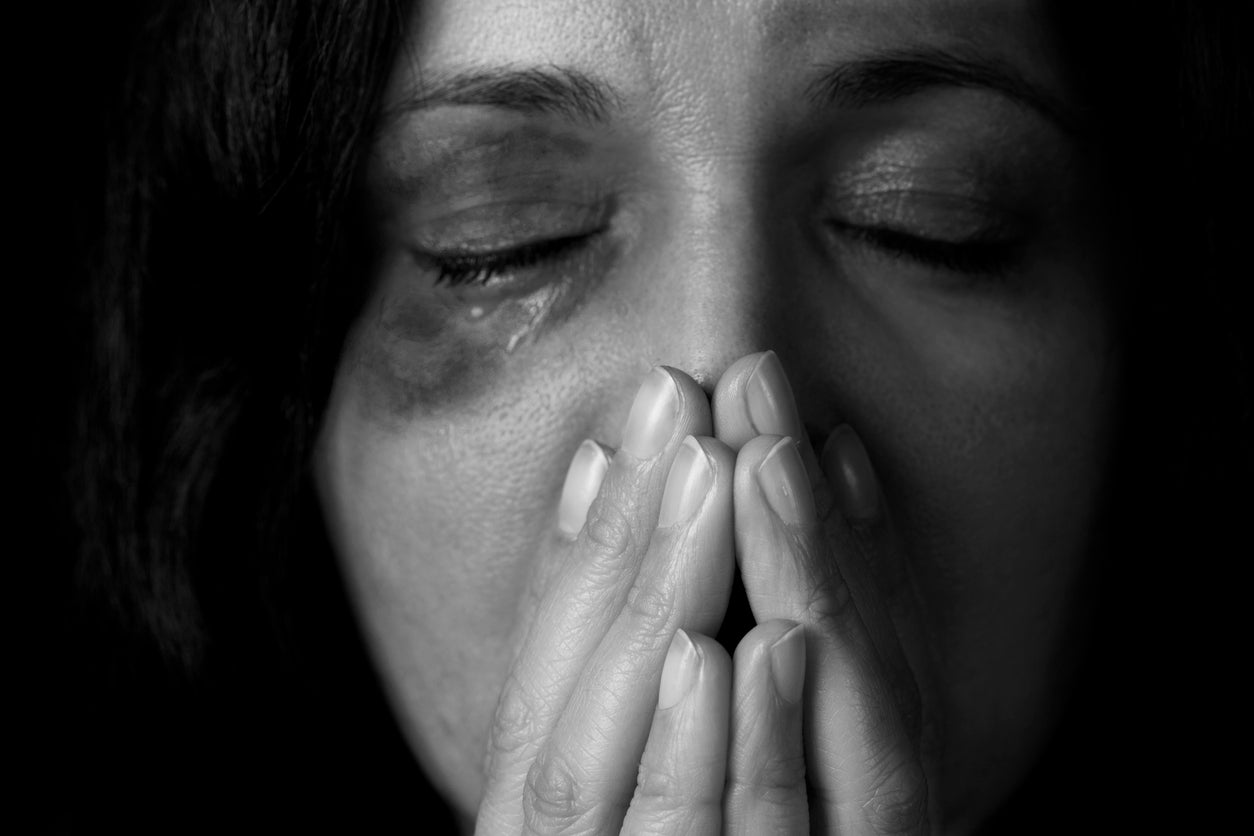‘It will be a whole new world’: Fears EU settlement deadline will place domestic abuse victims at grave risk
‘When your abuser has been isolating and controlling you and keeping you removed from society to begin with, proving your residency is no simple task,’ says expert

The EU settlement deadline will place migrant domestic abuse victims at grave risk due to making them “invisible” to services, campaigners have warned.
Refuge, the UK’s largest provider of shelters for domestic abuse victims, said many migrants whose partners have subjected them to abuse do not know they have to apply to the scheme as well as not knowing how to submit an application, despite the deadline being on Wednesday.
The EU settlement scheme, which opened in March 2019, requires all EU and EEA nationals and their family members living in the UK to apply by 30 June 2021 to keep their rights in the UK after Brexit.
Mari Edwards, head of operations at Refuge, said: “Through our frontline work with survivors, Refuge knows that there is confusion about the application process and many misconceptions about who should apply for the EU Settlement Scheme.
“The application scheme has been painted as a simple one – but that is not the reality for many women. We have supported women who have been prevented from working or accessing services by their abusers, and who have had to gather suitcases full of letters and documents, just to show they live in this country.
“When your abuser has been isolating and controlling you and keeping you removed from society to begin with, proving your residency is no simple task.”
She warned many domestic abuse victims which Refuge supports are still oblivious about the outcomes of their applications due to there being a “huge backlog of cases”.
Ms Edwards noted the backlog is likely to rise as the deadline comes to an end as she warns there is a great deal of uncertainty about what will happen to cases after the deadline later this week.
She added: “There’s a high level of fear surrounding Brexit and the EU Settlement Scheme. There’s also no clarity on what will happen to those who don’t apply in time, so we are at a loss to know what to say to the women in our services.
“Migrant women may already hold mistrust for the police and state-run services, and Refuge is concerned that the changing immigration landscape will marginalise them and their children even further. In just a few days it will be a whole new world and we’re worried about the impact this will have on the women we support.”
Ms Edwards argued it is key domestic abuse survivors and their families are assured late applications will be accepted after the 30 June deadline and that legal aid is given to vulnerable survivors, so they have the support they require when applying. She noted Refuge will carry on supporting all women irrespective of their immigration status.
EU nationals being abused by their partners have struggled to provide the correct proof required for the settlement scheme as their partner’s campaign of coercive control means they do not have the correct documents despite spending many years living in Britain, according to Refuge, while other victims’ abusive partners have destroyed their official papers.
Refuge raised fears domestic abuse victims who miss the deadline to apply for the scheme will face “devastating” repercussions – with some “effectively” becoming “invisible” to services.
Not applying by the deadline could lead to women becoming “undocumented overnight” and being “locked out of work, healthcare, benefits and even facing deportation”, the leading domestic abuse charity said.
Missing the EU settlement scheme could compound the pre-existing problem of domestic abuse victims being too scared to report violent incidents carried out by their partners to the police, social services, or even going to the NHS for healthcare if their perpetrator leaves them injured.
Many victims are said to be wholly unaware they must also apply for the EU settlement scheme for their children and other dependants.
Campaigners noted migrant domestic abuse victims are routinely blocked from learning English by their abusive partners – with this being a key element of the coercive control they are subjected to as well as making it hard for them to navigate the EUSS application system.
Almost half of victims supported by Refuge’s specialist Eastern European advocacy service between 2018 and 2021 needed help with speaking English.
Campaigners have long warned migrant women’s immigration status is routinely wielded as a “weapon to abuse” them by their partners.
London’s Independent Victims Commissioner, Claire Waxman, and the Domestic Abuse Commissioner, Nicole Jacobs, previously toldThe Independent the most “most marginalised and isolated” domestic abuse victims are routinely failed due to their immigration status.
Anyone who requires help or support can contact the National Domestic Abuse Helpline which is open 24/7 365 days per year on 0808 2000 247 or via their website https://www.nationaldahelpline.org.uk/
Subscribe to Independent Premium to bookmark this article
Want to bookmark your favourite articles and stories to read or reference later? Start your Independent Premium subscription today.

Join our commenting forum
Join thought-provoking conversations, follow other Independent readers and see their replies